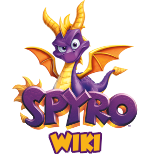Welcome to the Spyro Wiki's new home world!
Feel free to rewrite and expand the articles and upload images that are missing.
Spyro (franchise)
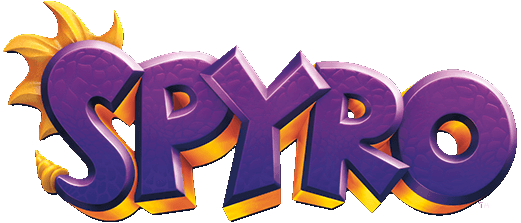
The Spyro franchise is a series of platforming games starring a purple dragon named Spyro. The games were originally developed by Insomniac Games for the PlayStation, starting with the release of Spyro the Dragon in 1998, and published by Univeral Interactive. It is the sister franchise of the Crash Bandicoot franchise. The whole series has sold over 20 million copies worldwide, as of October 2007.[1] In an interview, Ted Price said that Insomniac stopped developing Spyro games after Spyro: Year of the Dragon because Spyro could not hold anything in his hands, therefore limiting his actions.[2]
For the first three games, Spyro became a mascot for the PlayStation alongside Crash Bandicoot, both of whom appeared in several games together. In the 2000s, the Spyro franchise switched between various developers. Since 2008, when Activision acquired the rights to the franchise, the Spyro series has entered a long hiatus. In 2011, the Spyro series spawned a large spin-off series, the Skylanders franchise, which contributed to the Spyro series' abandonment. Eventually, in 2018, Activision published the Spyro Reignited Trilogy on PlayStation 4 and Xbox One, a whole decade since the previous Spyro game was released.
Games
Main series
The main Spyro the Dragon series consists of six mainline games in the original series, four GameBoy Advance portable games and The Legend of Spyro trilogy (which belongs to different continuity). Although the sixth game, Spyro: Shadow Legacy, was released for Nintendo DS instead for major platforms, it is considered to be a part of the main series storyline since it is a direct sequel to Spyro: A Hero's Tail.
| Name | Console(s) | Developer | Year released |
|---|---|---|---|
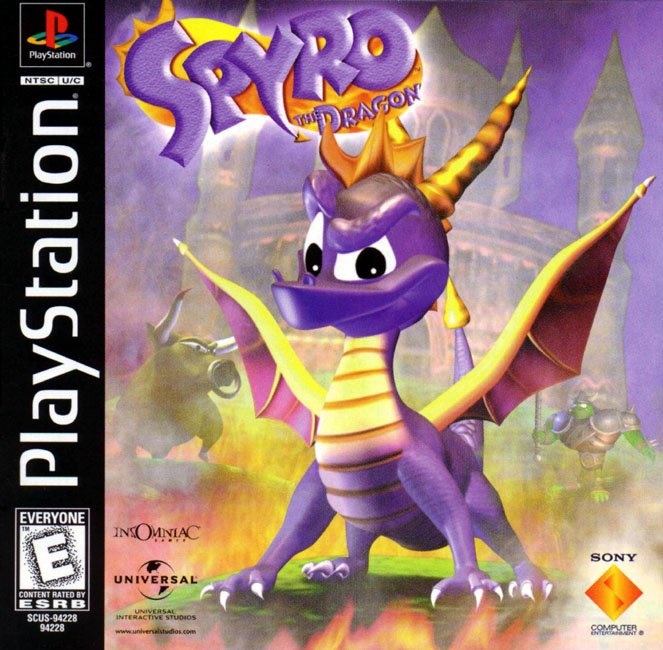 Spyro the Dragon (game) |
PlayStation | Insomniac Games | 1998 |
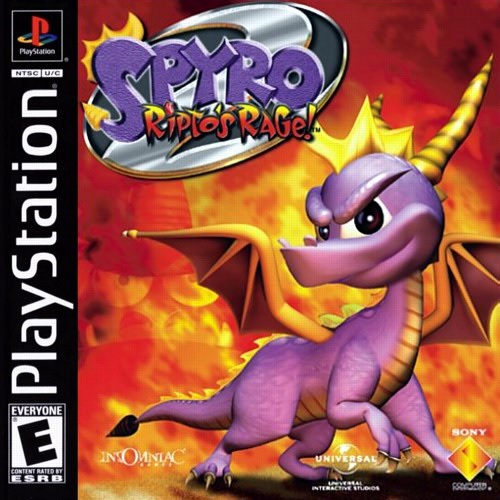 Spyro 2: Ripto's Rage! |
PlayStation | Insomniac Games | 1999 |
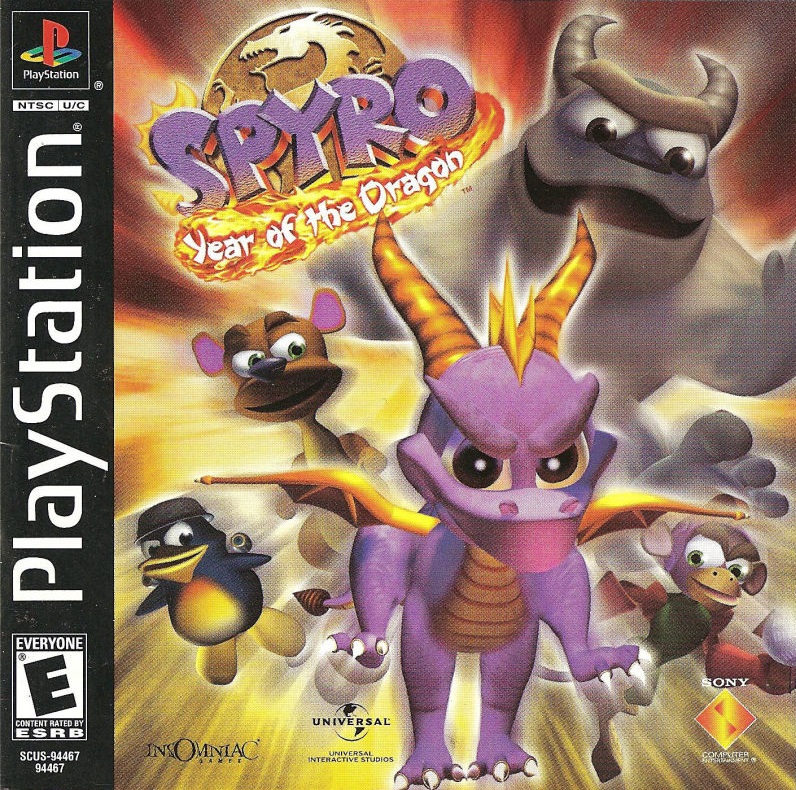 Spyro: Year of the Dragon |
PlayStation | Insomniac Games | 2000 |
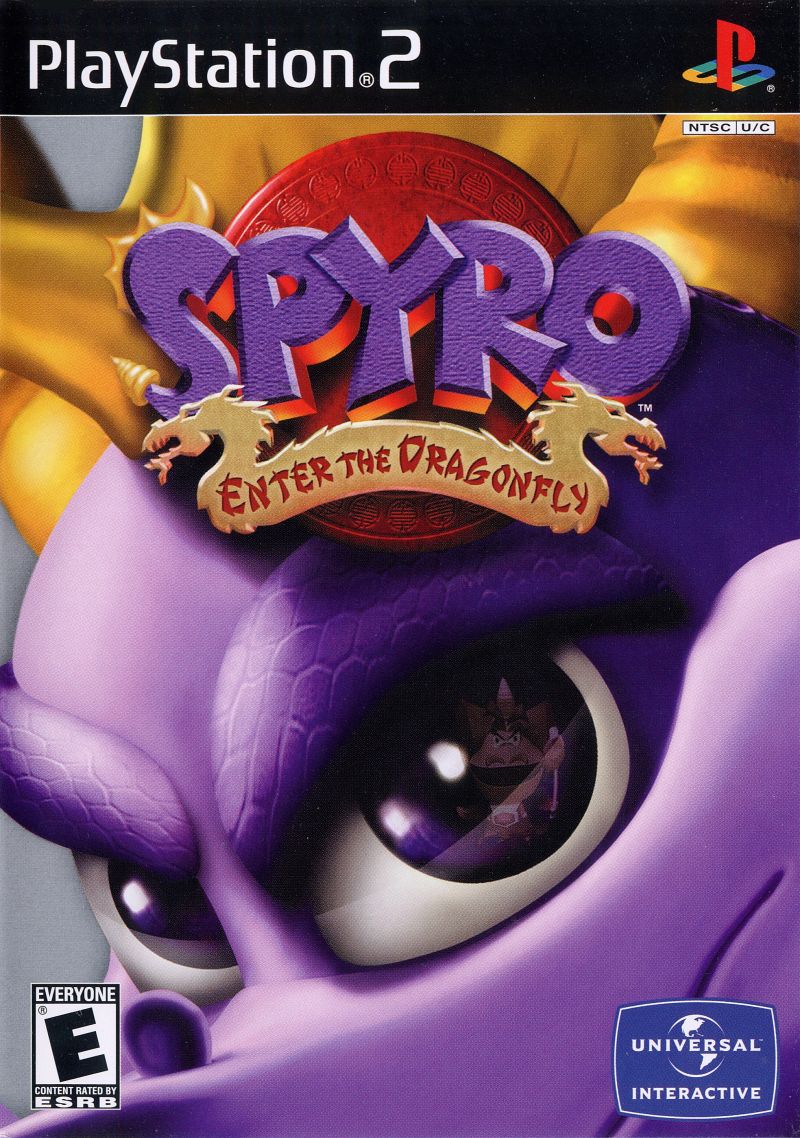 Spyro: Enter the Dragonfly |
PlayStation 2, Nintendo GameCube | Equinoxe Digital Entertainment, Check Six Studios | 2002 |
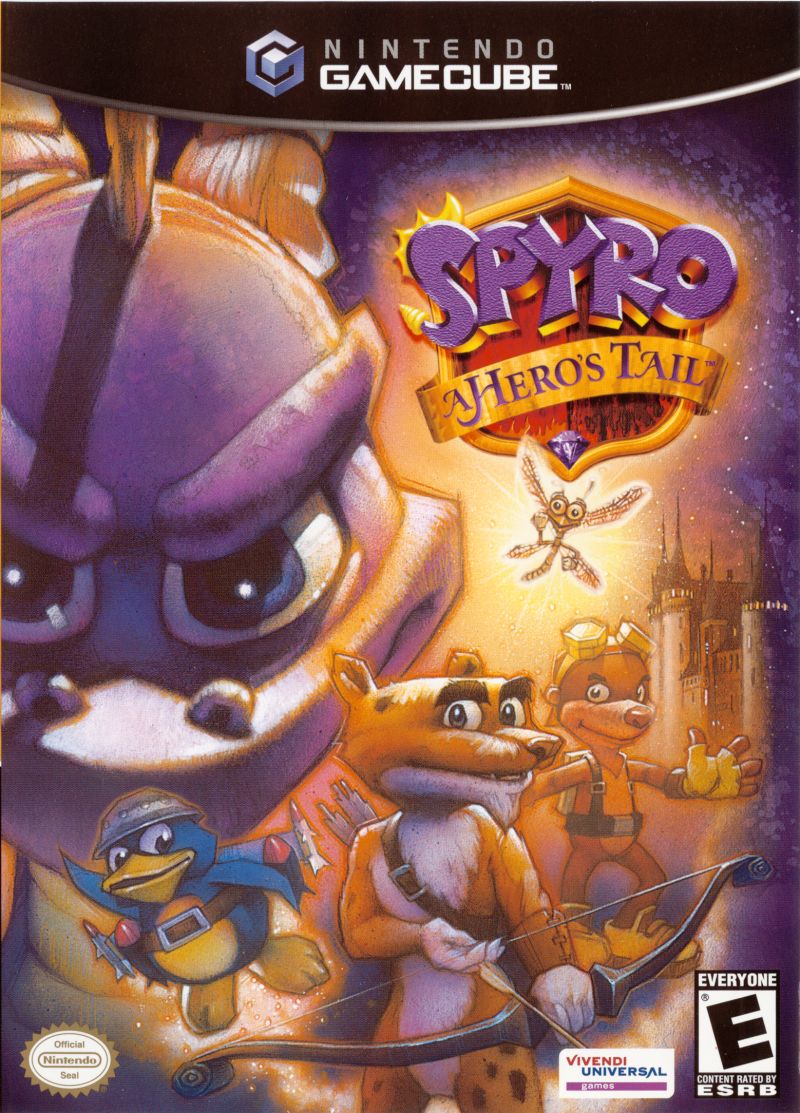 Spyro: A Hero's Tail |
PlayStation 2, Xbox, Nintendo GameCube | Eurocom | 2004 |
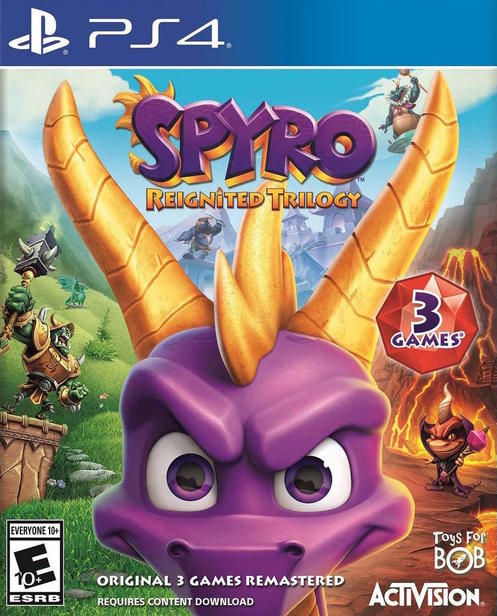 Spyro Reignited Trilogy |
PlayStation 4, Xbox One, Microsoft Windows, Nintendo Switch |
Toys For Bob, Sanzaru Games, various | 2018 (PS4, Xbox One), 2019 (Windows, Switch) |
Portable games
| Name | Console(s) | Developer | Year released |
|---|---|---|---|
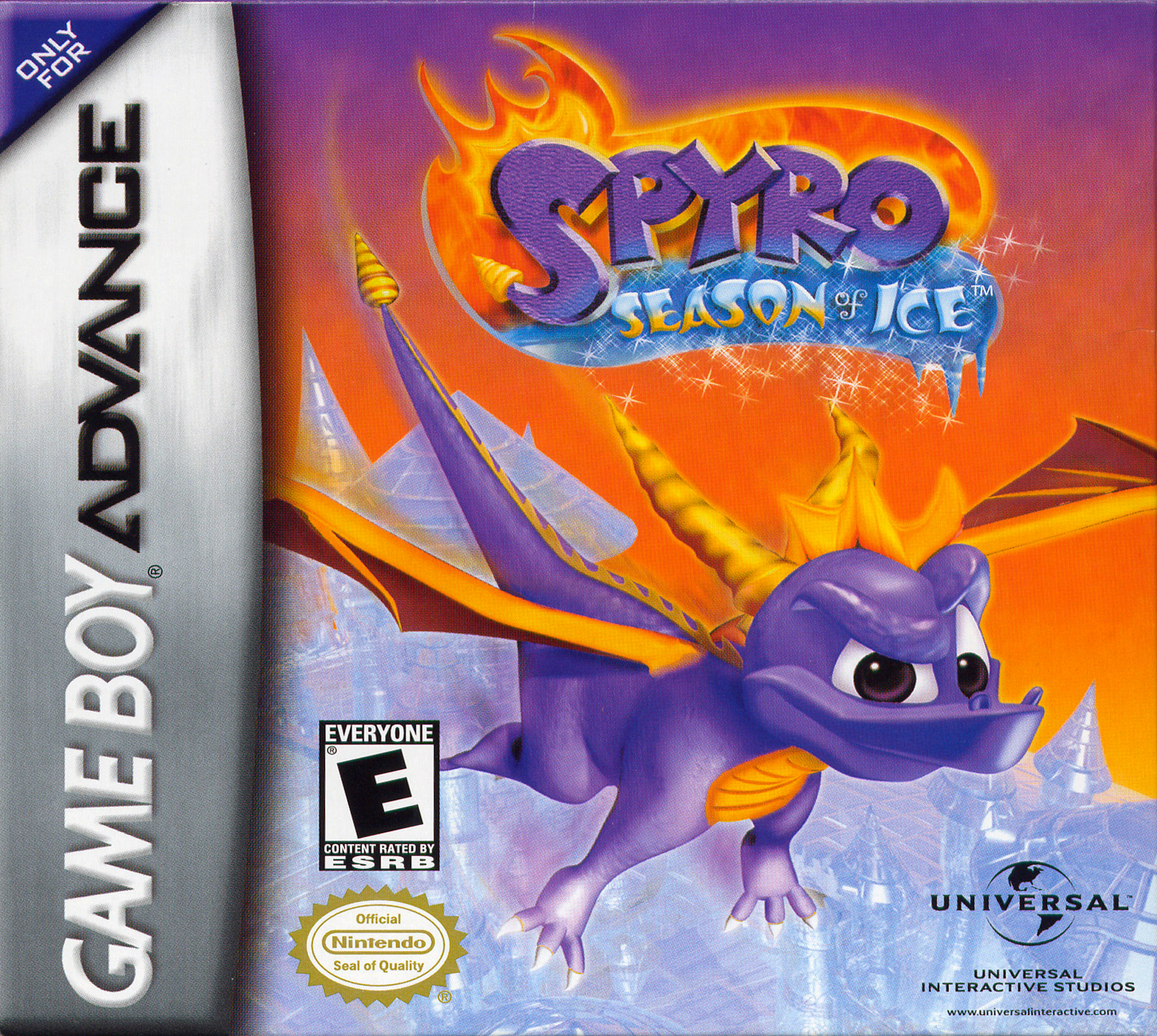 Spyro: Season of Ice |
Digital Eclipse | Game Boy Advance | 2001 |
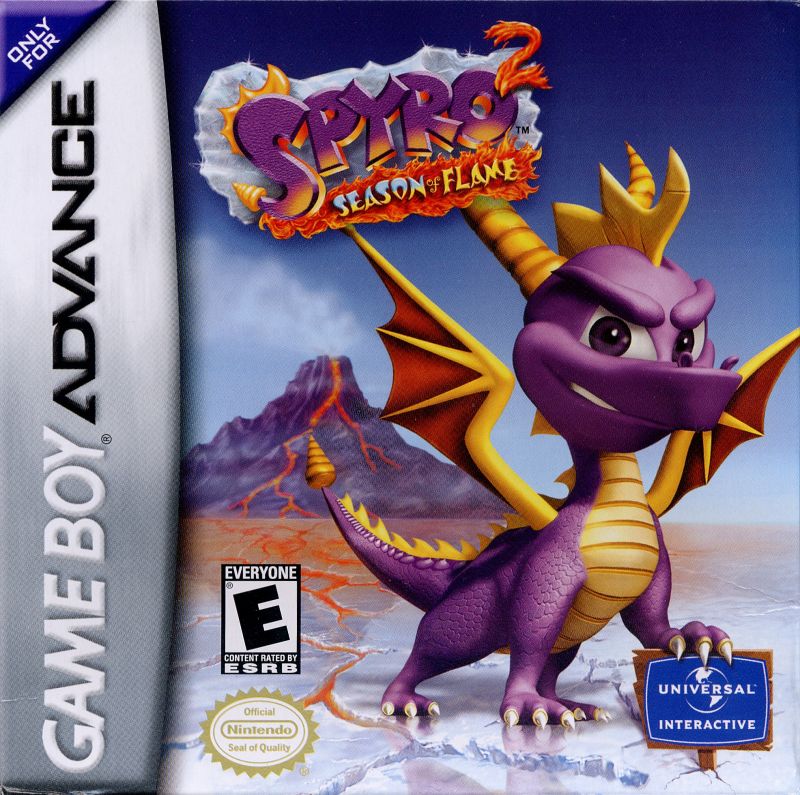 Spyro 2: Season of Flame |
Game Boy Advance | Digital Eclipse | 2002 |
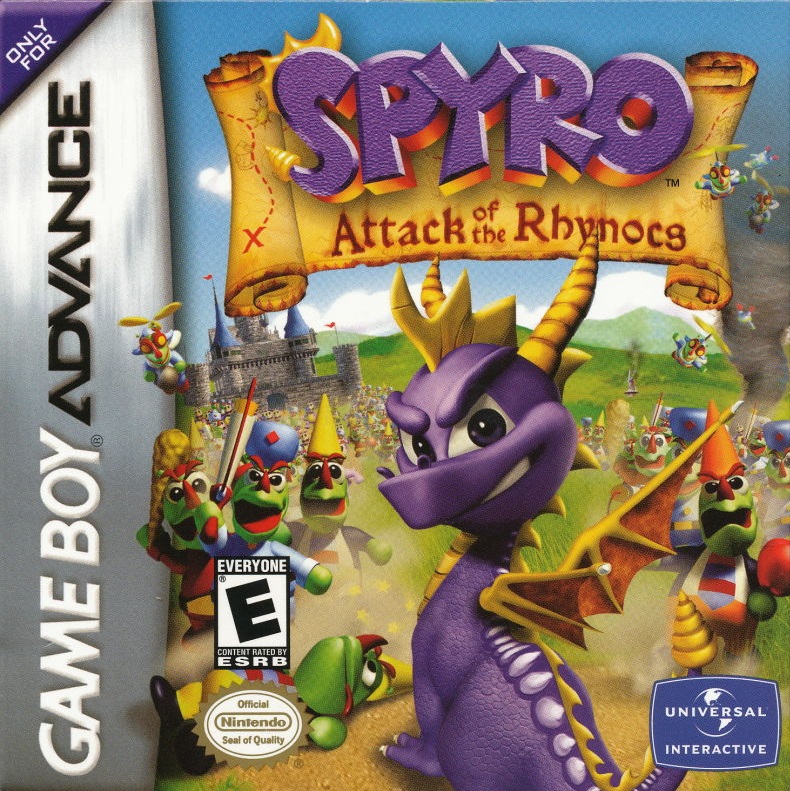 Spyro: Attack of the Rhynocs |
Game Boy Advance | Digital Eclipse | 2003 |
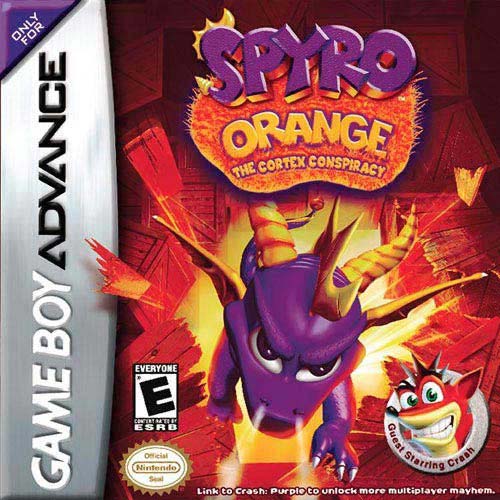 Spyro Orange: The Cortex Conspiracy |
Game Boy Advance | Vicarious Visions | 2004 |
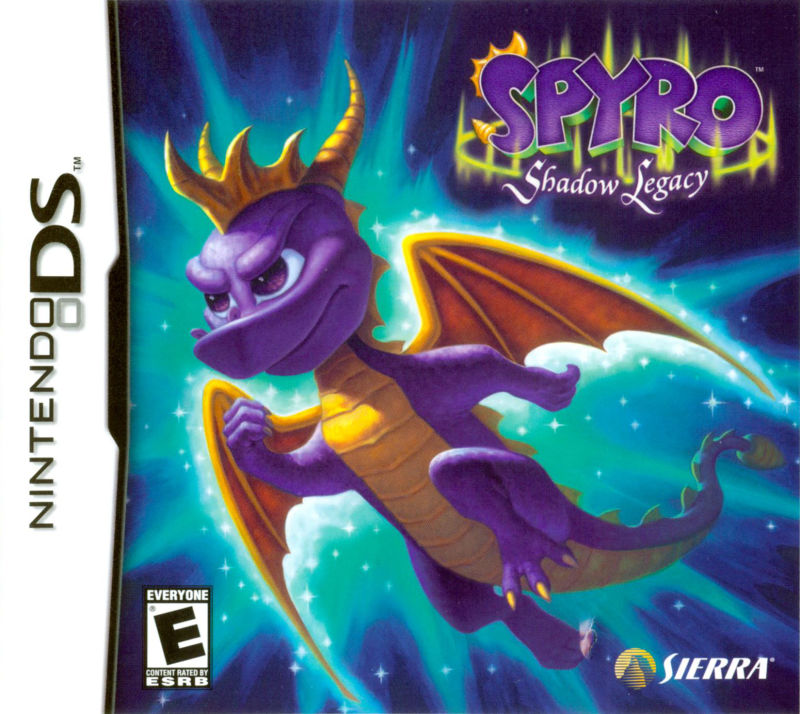 Spyro: Shadow Legacy |
Nintendo DS | Amaze Entertainment | 2005 |
The Legend of Spyro series
The Legend of Spyro series is a reboot of the Spyro franchise that features a separate continuity different from the existing Spyro universe of the previous games (1998-2005). It stars a different version of Spyro along with a few familiar cast of characters and new ones created for the reboot.
| Name | Console(s) | Developer | Year released |
|---|---|---|---|
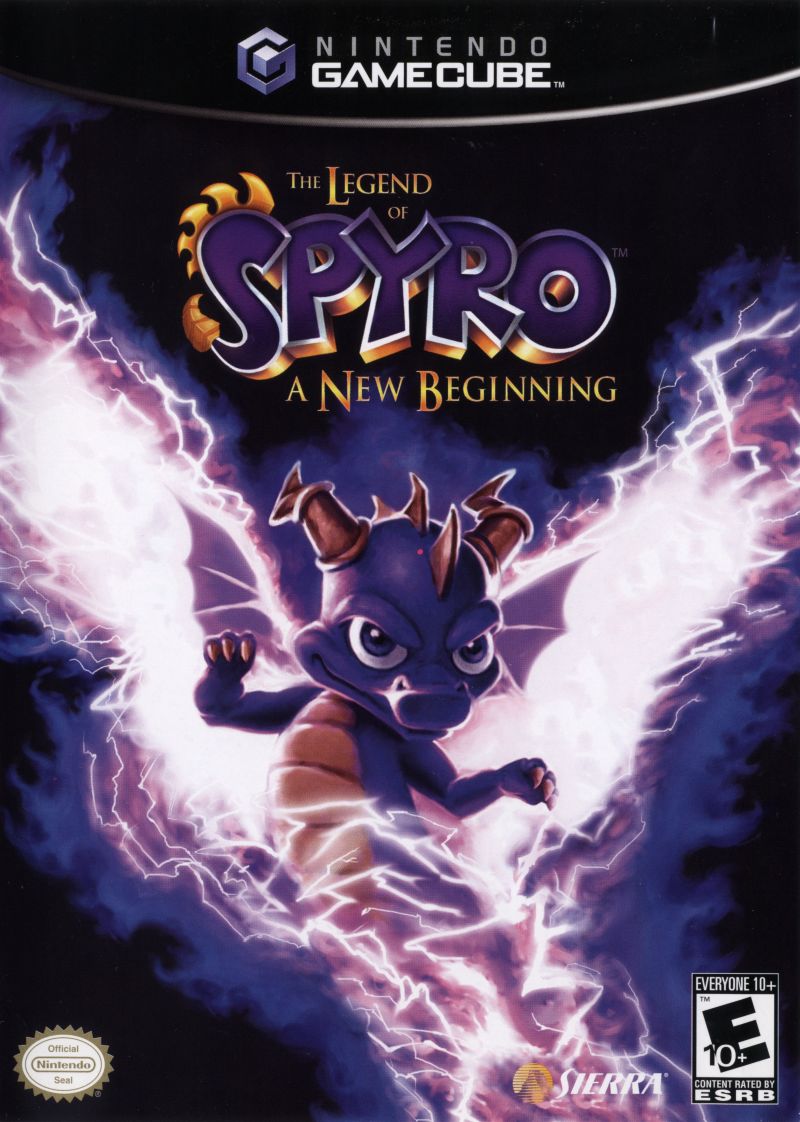 The Legend of Spyro: A New Beginning |
Game Boy Advance, GameCube, PlayStation 2, Xbox, Nintendo DS |
Krome Studios, Amaze Entertainment | 2006 |
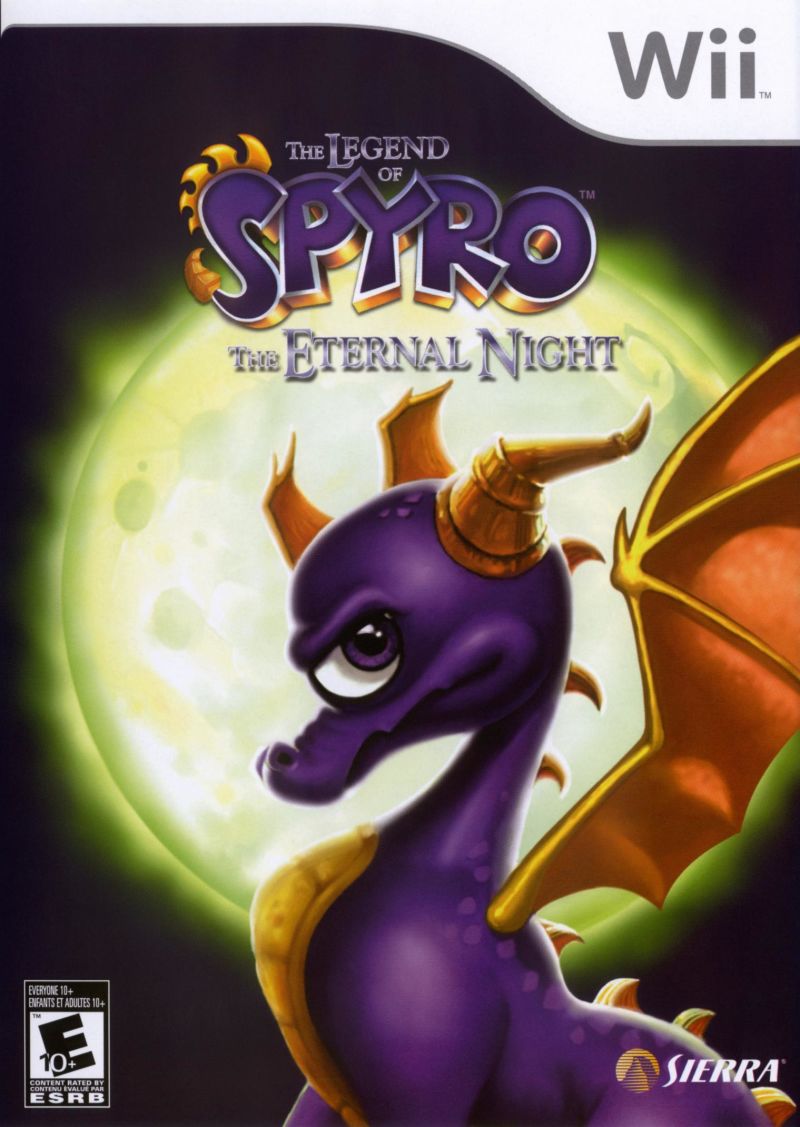 The Legend of Spyro: The Eternal Night |
Game Boy Advance, Nintendo DS, PlayStation 2, Wii | Krome Studios, Amaze Entertainment | 2007 |
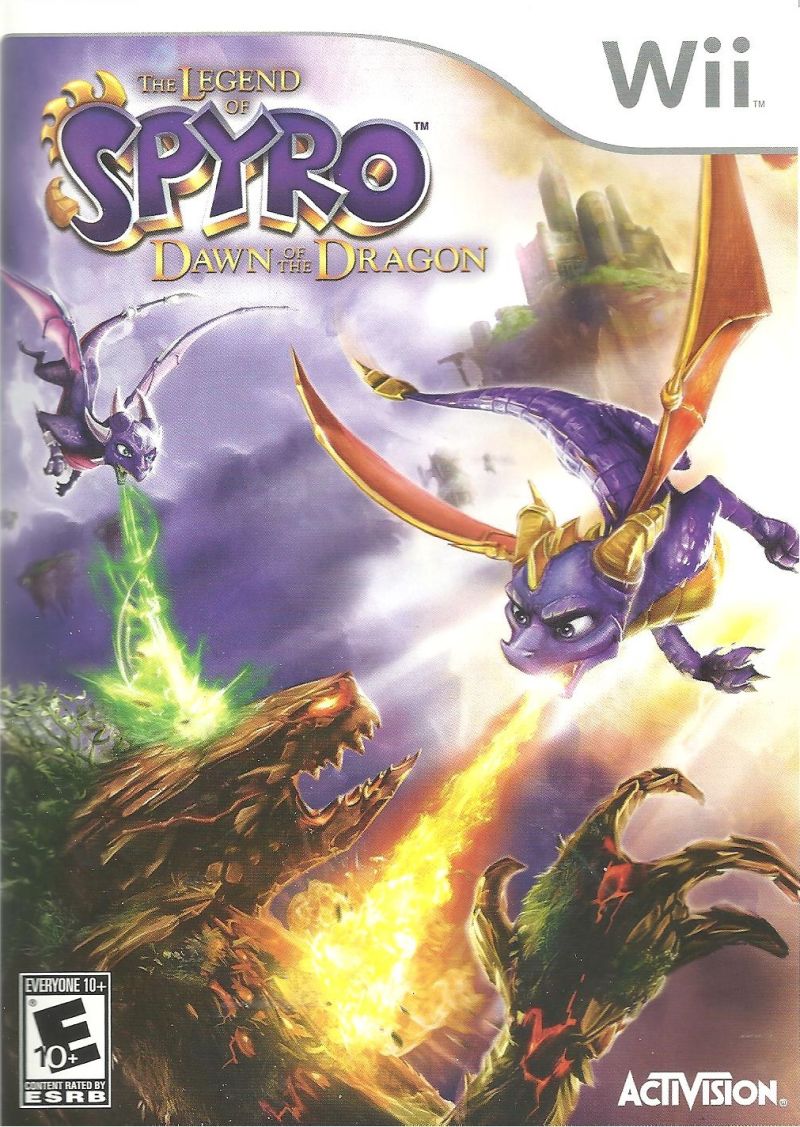 The Legend of Spyro: Dawn of the Dragon |
Nintendo DS, PlayStation 2, PlayStation 3, Wii, Xbox 360 | Étranges Libellules, Tantalus Media | 2008 |
Flash games
The Spyro franchise had several flash games in the 2000s. The promotional websites for Spyro 2: Ripto's Rage! and Spyro: Year of the Dragon had flash minigames. The latter game had a downloadable flash game in executable format, Spark's Pond. The promotional website for Spyro 2: Season of Flame had a flash game called Super Spyro Speedway.
In 2004, Kraft Foods held a promotion on Candystand named Crash and Spyro Adventure World, which promoted the two games, Crash Bandicoot Purple: Ripto's Rampage and Spyro Orange: The Cortex Conspiracy. The promotion had seven flash games, and six of them were unlockable. To unlock them, consumers had to enter a special code found on trading cards that came with Nabisco Fruit Snacks and Jell-O Pudding Bites. Every trading card had one of six codes, each of which unlocked one of the minigames.[3]
Neopets had several promotional flash games on their site. There were three known flash games, all of which could be played without a login: Spyro: Power Blast, Crash and Spyro, and Spyro Shadow Legacy: Magic Attack.
Comics
In the Skylanders franchise, Spyro, Cynder, and other related characters made appearances in certain story issues in the IDW comics.
- Skylanders: Return of the Dragon King
- Skylanders: Rift into Overdrive
- Skylanders: Secret Agent Secrets
- Skylanders: Spyro & Friends
Media
Spyro appears as one of the main stars in the Skylanders animated Netflix television series, Skylanders Academy.[4] This marks Spyro's first debut in an animated television series. He is later joined by Cynder and Malefor.
Common Gameplay Elements
Games in the Spyro franchise typically allow the player to control the titular Spyro the Dragon through levels, collecting items and defeating enemies. Spyro can usually charge, breathe fire, and use some form of flight, usually gliding.
Most games represent free flight, either with designated flight areas such as Speedways, the ability to fly slightly above the ground to move faster and cross water (in Skylanders), or even the ability to fly freely at any time (in Dawn of the Dragon).
Some games provide other playable characters. The original series allowed players to control several unique characters for varied gameplay, such as Sheila, a kangaroo who jumps much higher than Spyro, or Agent 9, who wields a ray-gun. Dawn of the Dragon featured co-op gameplay with another dragon, Cynder. The Skylanders series features Spyro alongside a much larger pool of playable characters, the titular Skylanders.
All games also feature enemies to battle. The original series' enemies were defeated in one hit, a standard platformer trait, while The Legend of Spyro placed much greater emphasis on melee combat, and Skylanders used hack-and-slash gameplay.
Reoccurring Themes
Several characters have appeared in multiple continuities:
- Spyro the Dragon (original, Legend, Skylanders, Skylanders Academy)
- Sparx the Dragonfly (original, Legend, Skylanders)
- Hunter the Cheetah (original, Legend)
- Cynder (Legend, Skylanders, Skylanders Academy)
- Malefor (Legend, Skylanders, Skylanders Academy)
Additionally, several other elements are used in multiple series. Both the original and Skylanders series feature balloonists, sheep, and flying vehicles outfitted with dragon wings. The Portal of Power from Skylanders is said to be based on the classic portals, and the character Auric resembles Moneybags. All three series depict Sparx eating butterflies. In addition, Shadow Legacy, The Legend of Spyro, and Spyro's Skylanders biography mention Purple Dragons being a special, more powerful breed.
References
- ↑ Spyro Invades Wendy's Kid's Meals. (Date Posted - Oct 12 2007) Kotaku.
- ↑ Resistance 2 Interview with Ted Price. Game Daily (archived).
- ↑ Crash Bandicoot, Spyro the Dragon and Kraft (GBA). GameSpy (Wayback Machine). Published May 18, 2004.
- ↑ Activision Blizzard Launches Activision Blizzard Studios to Create Original Film and TV Content Based on Iconic, Globally-Recognized Franchises. (Date Posted - Nov. 06, 2015). BusinessWire.
